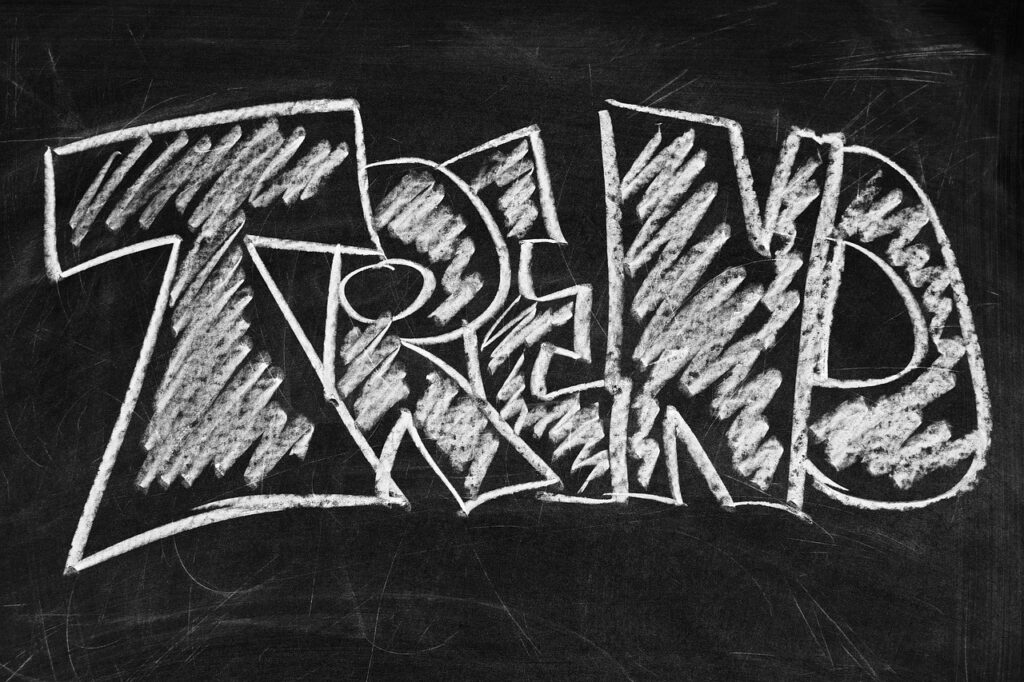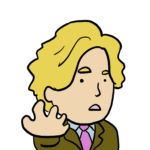
はじめに
この記事では最近のトレンドニュースを英語にして紹介しています。今回のトレンドニュースは、「トラウマ」についてです。英語力向上に、是非最後までご一読ください。
トラウマとは?


Xのトレンドに「トラウマ」がキーワードで挙がっていました。気になって「トラウマ」についての定義や特徴を調べてみました。是非英語でご一読ください。
Definition of Trauma
The term “trauma” is frequently used in the fields of psychology and psychiatry. Trauma refers to a state where an individual experiences psychological, emotional, or physical impacts as a result of severe stress or distressing events. Below is a detailed explanation of the definition of trauma and its key elements.
What is Trauma?
Trauma is a psychological response that occurs when a person encounters an extremely shocking and overwhelming event or situation. These events can leave deep emotional scars on the individual, affecting them for a long time. Trauma can manifest in various forms, including:
- Psychological Trauma:
- A psychological injury caused by events that elicit intense fear, helplessness, or extreme stress.
- Examples: accidents, natural disasters, violent incidents, war, abuse.
- Emotional Trauma:
- Emotional wounds caused by events involving profound sorrow or despair.
- Examples: the death of a loved one, divorce, significant betrayal.
- Physical Trauma:
- Physical injuries caused by events that directly harm the body.
- Examples: severe injuries from accidents, physical assault.
Key Characteristics of Trauma
- Intense Emotional Reactions:
- Persistent feelings of intense fear, anger, or sadness following a traumatic experience.
- Flashbacks and Nightmares:
- Repeatedly reliving the traumatic event or experiencing nightmares about it.
- Avoidance Behavior:
- A tendency to avoid situations or places that trigger memories of the trauma.
- Hyperarousal State:
- Continually being in a state of heightened alertness, easily startled, or overly sensitive to stimuli.
- Impact on Relationships:
- Social isolation and interpersonal relationship problems can occur.
Causes of Trauma
Trauma is often triggered by the following events:
- Natural Disasters: Earthquakes, tsunamis, floods, fires.
- Violent Incidents: Physical assaults, robberies, sexual violence.
- War and Conflict: Combat, terrorism, refugee experiences.
- Major Accidents: Traffic accidents, industrial disasters.
- Abuse (Physical and Mental): Childhood abuse, domestic violence.
Effects of Trauma
Trauma has both short-term and long-term effects, including:
- Psychological Effects: Anxiety disorders, depression, panic disorders, PTSD (Post-Traumatic Stress Disorder).
- Physical Effects: Chronic pain, headaches, digestive issues.
- Social Effects: Problems in personal relationships, decreased performance at work or school.
Treatment of Trauma
There are various methods for treating trauma, primarily including:
- Psychotherapy: Cognitive Behavioral Therapy (CBT), Eye Movement Desensitization and Reprocessing (EMDR).
- Medication: Medications to alleviate anxiety and depression.
- Support Groups: Peer support groups for individuals with similar experiences.
Recovery from trauma can take time, but with proper support and treatment, many people are able to heal and regain a healthy life.
役立つ英単語
以下の英文から、中級者以上向けの10個の単語を抽出し、発音記号、日本語訳、品詞、類義語、例文を提供します。
| 単語 | 発音記号 | 日本語訳 | 品詞 | 類義語 | 例文 |
|---|---|---|---|---|---|
| Frequently | /ˈfriːkwəntli/ | 頻繁に | 副詞 | Often, Regularly | The term “trauma” is frequently used in psychology and psychiatry. |
| Encounter | /ɪnˈkaʊntər/ | 遭遇する、出会う | 動詞 | Face, Meet | Trauma occurs when a person encounters an extremely shocking event. |
| Manifest | /ˈmænɪfɛst/ | 現れる、明らかにする | 動詞 | Display, Show | Trauma can manifest in various forms. |
| Persistent | /pərˈsɪstənt/ | 持続的な、執拗な | 形容詞 | Constant, Continuous | Persistent feelings of intense fear are common after a traumatic experience. |
| Hyperarousal | /ˌhaɪpərəˈraʊzəl/ | 過覚醒、過敏状態 | 名詞 | Overstimulation, Heightened alertness | Trauma can lead to a hyperarousal state where the person is always on edge. |
| Isolation | /ˌaɪsəˈleɪʃən/ | 孤立、隔離 | 名詞 | Separation, Loneliness | Social isolation is a common effect of trauma. |
| Trigger | /ˈtrɪɡər/ | 引き金、引き起こす | 名詞/動詞 | Cause, Initiate | Certain situations can trigger memories of the trauma. |
| Cognitive | /ˈkɒɡnɪtɪv/ | 認知の、認知的な | 形容詞 | Mental, Intellectual | Cognitive Behavioral Therapy (CBT) is effective in treating trauma. |
| Desensitization | /diːˌsɛnsɪtaɪˈzeɪʃən/ | 脱感作、鈍感化 | 名詞 | Reduction in sensitivity, Acclimatization | Eye Movement Desensitization and Reprocessing (EMDR) is a therapy used for trauma. |
| Alleviate | /əˈliːvieɪt/ | 和らげる、軽減する | 動詞 | Relieve, Lessen | Medications can help alleviate anxiety and depression caused by trauma. |
記事の日本語訳
「トラウマ」という言葉は、心理学や精神医学の分野で頻繁に使用されます。トラウマは、個人が経験する深刻なストレスや苦痛の結果として、心理的、感情的、あるいは身体的な影響を受ける状態を指します。以下に、トラウマの定義とその主要な要素について詳しく説明します。
トラウマの定義
トラウマとは、極めて衝撃的で、圧倒的な出来事や状況に直面したときに生じる心理的な反応です。このような出来事は、人の心に深い傷を残し、長期間にわたって影響を及ぼすことがあります。トラウマは、以下のような様々な形で現れることがあります。
- 心理的トラウマ:
- 強い恐怖、無力感、極度のストレスを引き起こす出来事によって引き起こされる心理的な傷。
- 例:事故、自然災害、暴力的な事件、戦争、虐待など。
- 感情的トラウマ:
- 極度の悲しみや絶望感を伴う出来事によって引き起こされる感情的な傷。
- 例:近親者の死、離婚、重大な裏切りなど。
- 身体的トラウマ:
- 体に直接的な傷害を与える出来事によって引き起こされる身体的な損傷。
- 例:重傷を負う事故、暴力による身体的被害など。
トラウマの主要な特徴
- 強い感情的反応:
- トラウマ体験後、強烈な恐怖、怒り、悲しみなどの感情が持続することが多い。
- フラッシュバックと悪夢:
- トラウマ体験を繰り返し思い出す、あるいは悪夢を見ることがある。
- 回避行動:
- トラウマを思い出させる状況や場所を避ける傾向がある。
- 過覚醒状態:
- 常に緊張しやすく、音に過剰に反応するなど、過敏な状態が続く。
- 人間関係への影響:
- 社会的な孤立、対人関係の問題が生じることがある。
トラウマの原因
トラウマは、以下のような出来事によって引き起こされることが多いです。
- 自然災害: 地震、津波、洪水、火災など。
- 暴力的な事件: 物理的な攻撃、強盗、性暴力など。
- 戦争や紛争: 戦闘、テロリズム、避難生活など。
- 重大な事故: 交通事故、工業災害など。
- 身体的・精神的虐待: 子供時代の虐待、ドメスティックバイオレンスなど。
トラウマの影響
トラウマは、短期的および長期的な影響を及ぼします。これには以下が含まれます:
- 心理的影響: 不安障害、抑うつ、パニック障害、PTSD(心的外傷後ストレス障害)など。
- 身体的影響: 慢性的な痛み、頭痛、消化器系の問題など。
- 社会的影響: 人間関係の問題、仕事や学業のパフォーマンスの低下など。
トラウマの治療
トラウマに対する治療法は多岐にわたりますが、主に以下のような方法があります。
- 心理療法: 認知行動療法(CBT)、眼球運動による脱感作と再処理(EMDR)など。
- 薬物療法: 不安や抑うつを緩和するための薬物治療。
- サポートグループ: 同じような経験を持つ人々との支援グループ。
トラウマの回復には時間がかかることがありますが、適切なサポートと治療を受けることで、多くの人々が回復し、健全な生活を取り戻すことが可能です。
最後に

最近のトレンドニュースである「トラウマ」についてご一読頂きましたが、いかがだったでしょうか。
興味のあるトピックを英語で読むことで、楽しみながら英語に触れることができます。楽しくないと英語を勉強したり練習したりするモチベーションにつながりません。みなさんにとって、この記事が楽しく英語を勉強できる記事になっていることを願います!最後までご一読ありがとうございました!最後までご一読ください。








コメント